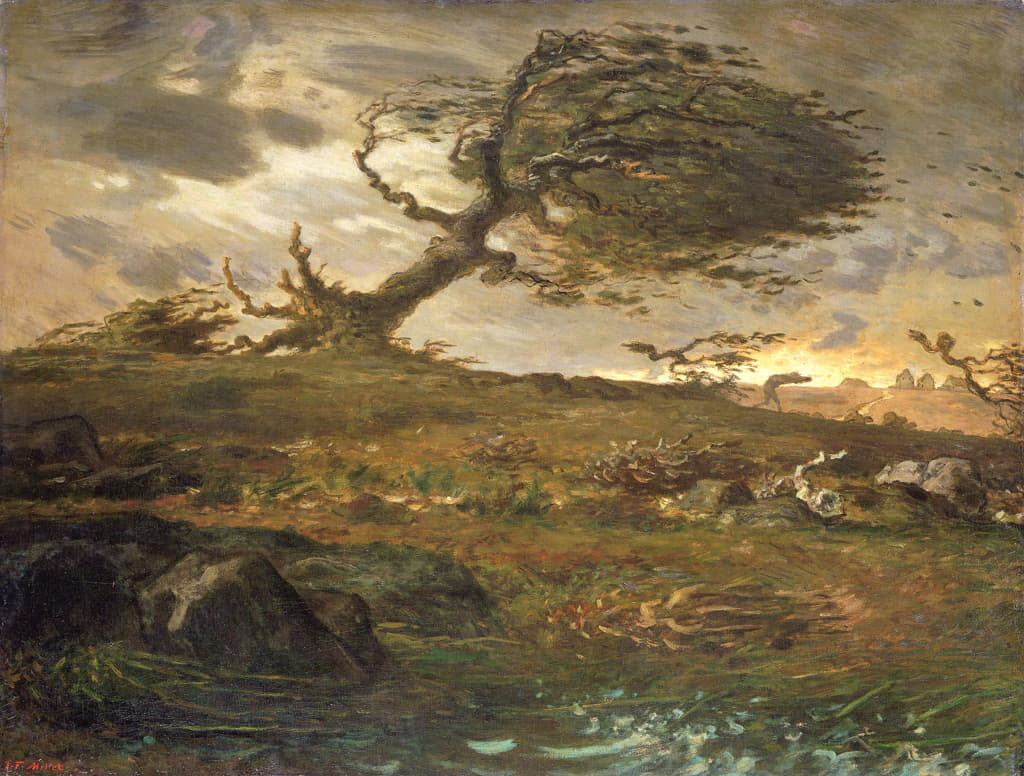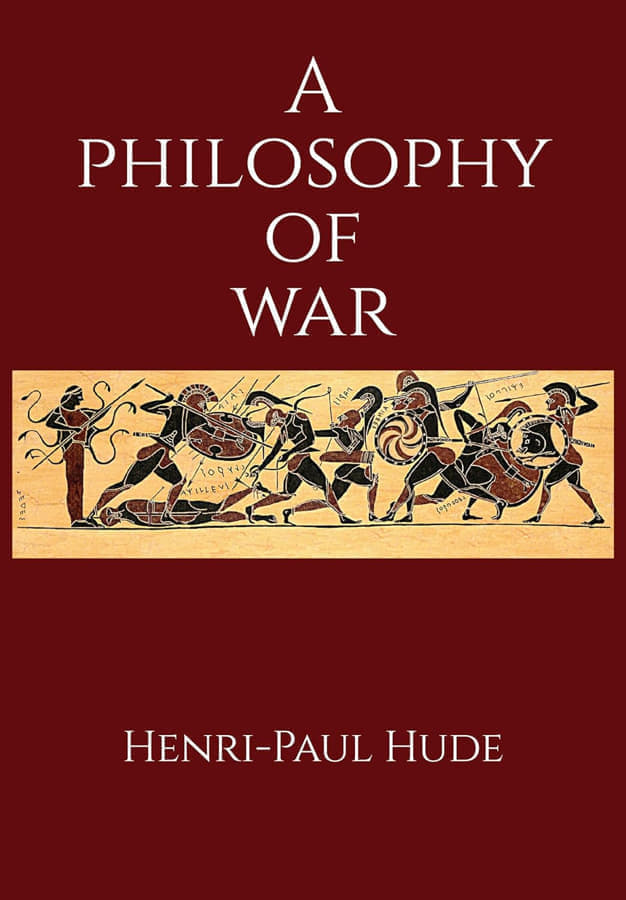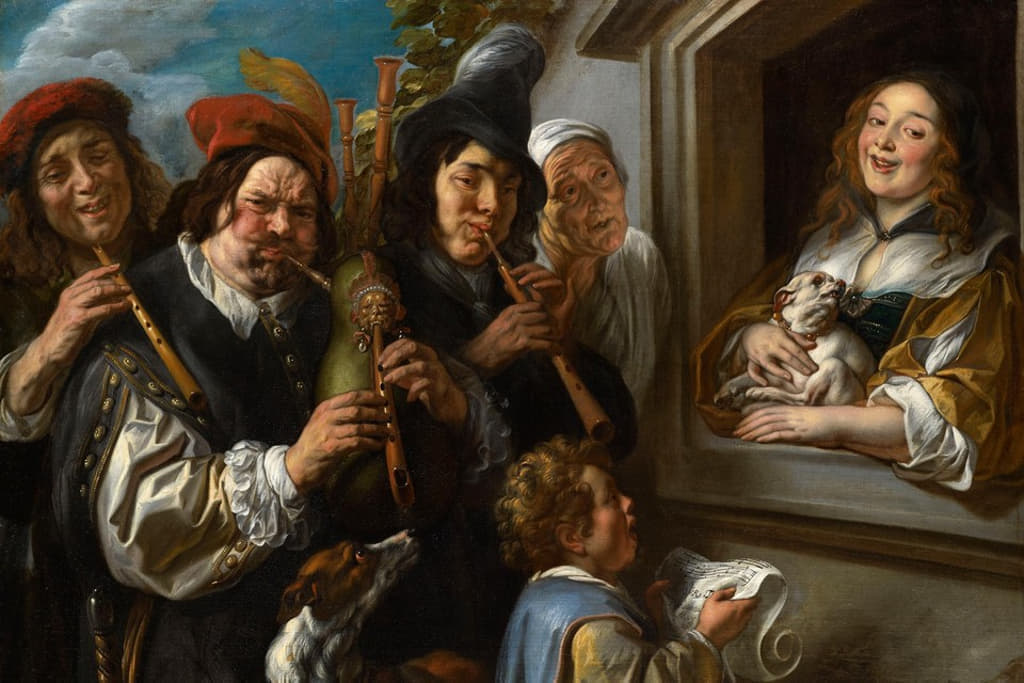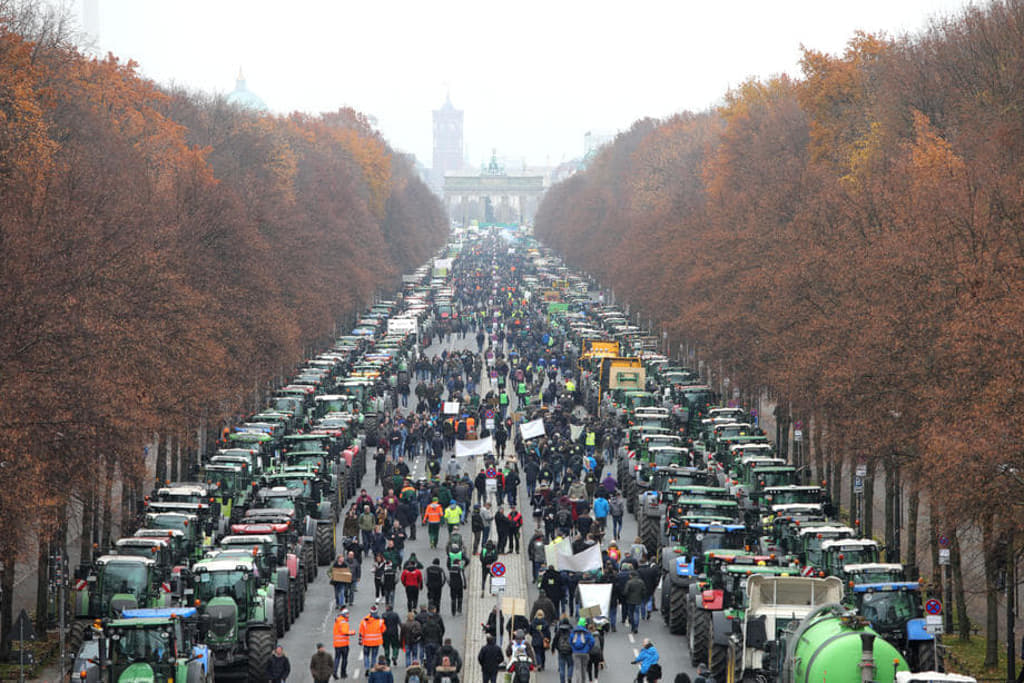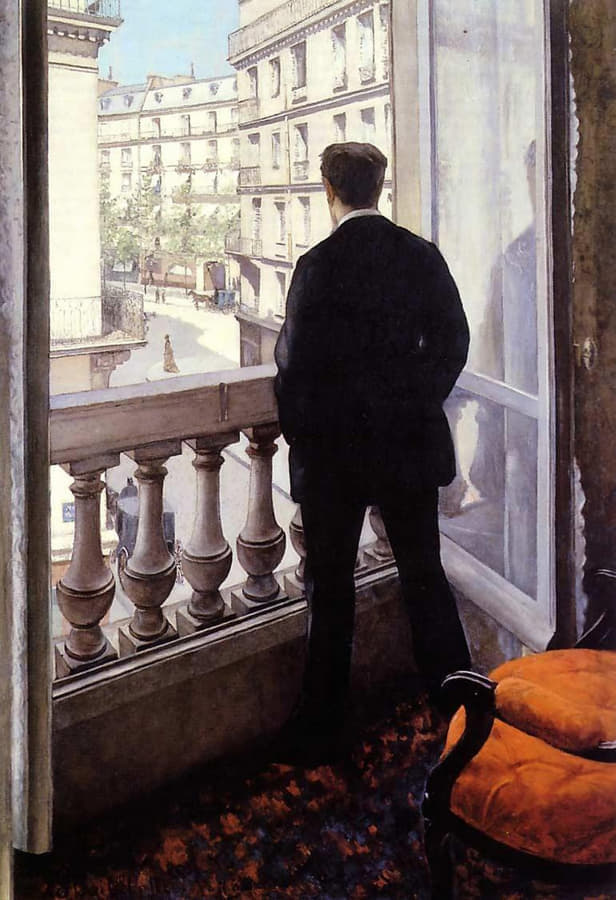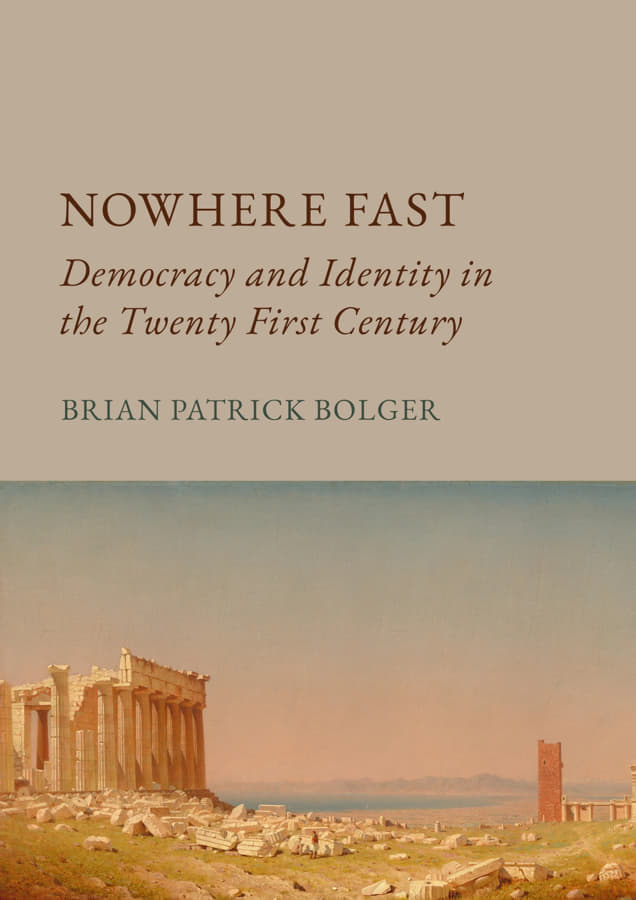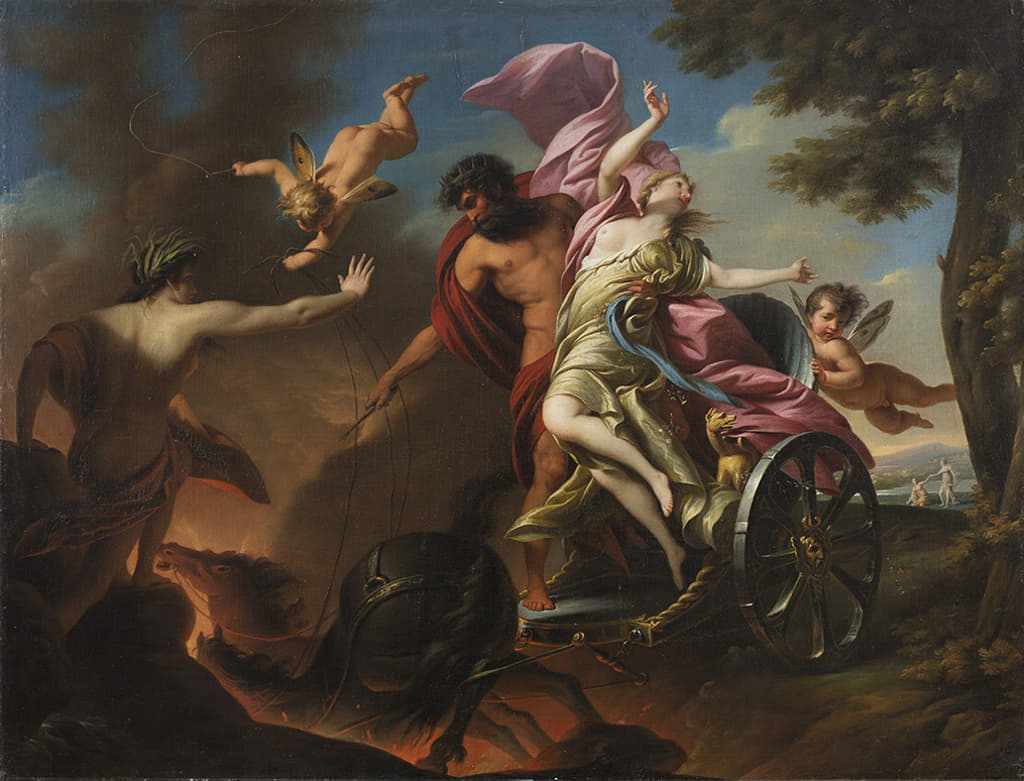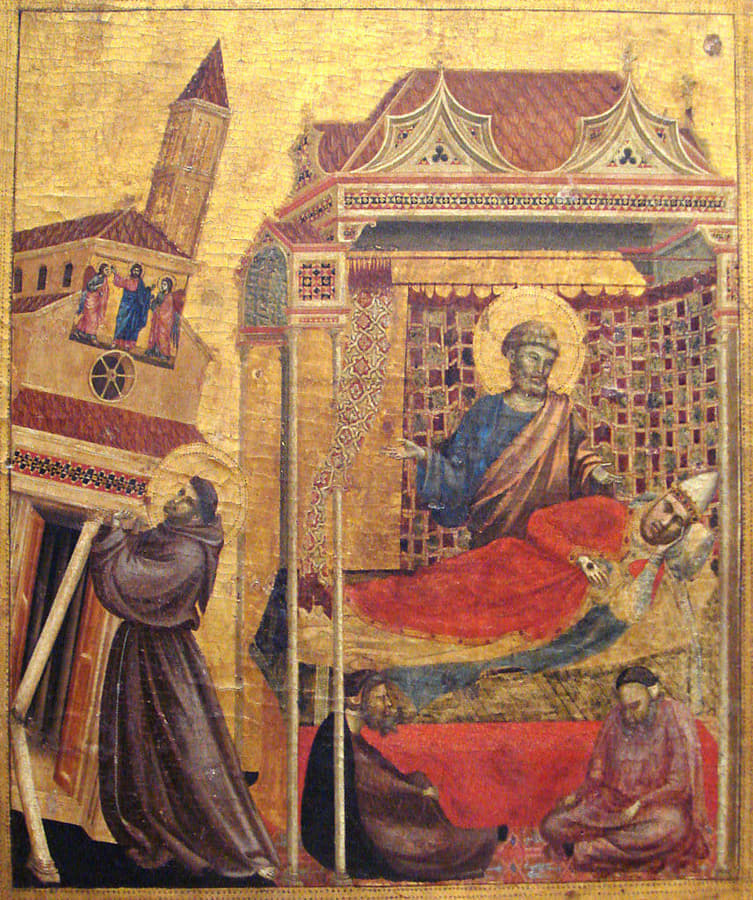Besides conveying personal sentiments to a most precious person, this letter is a pivot between my memoir, An Excess Of Love, and the finale of this triptych concerning nudism, family rearing, and education, Pearls Before Swine. It is a distillation of dynamics which attend The Problem, namely the lateness of the hour, the appropriate response of the republic to the occupation, and the sexual shift which must immediately attend the resistance if the good seeds yet sown are to bear fruit.
Introduction: Rumbles From The Goldfish
Spring ‘24
O, Sister!, Ya, Shaqiqa!,
The time of the hobbyist has passed. There is much work to do and the hour is late.
Any number of people have followed and follow the development of Apocatastasis Institute this decade of glory. I see the statistics on the school’s website and newsletters, I read the correspondence we get, I am flagged down by men about town – most of whom believe I am mad – to speak about the Institute.
The numbers of these things are healthy enough and regular enough to know that if my work is lonely, it is the loneliness of a goldfish in a bowl. But for all the eyeballs the Institute draws, I don’t know how many of the yoes I am still on speaking terms with. I did not make this cold situation, their women did, but that is besides the point.
As you know, I’ve two works out this spring; one on my time in ‘Rounds About Danbury on Holy Saturday, An Excess Of Love, and the other concerning naturism and child rearing on St. Anthony’s Day, Pearls Before Swine. Those are polemical works as soon as they are artistic; they are meant to provoke as soon as they are meant to inform. Patrick Pearse asked Thomas Clarke how to speak at Glasnevin. “Make it hot as hell,” the old jailbird said. “Throw discretion to the winds.” So have I, though even on a good day you’d never say I was the prudent sort. Before these two literary clouds burst, however, a rumble of thunder. I thought it worthwhile here to sketch in miniature the situation and principles which background both coming works; and I thought to do so to those who have been so patient to one so odd: to the Chosen Lady and to her children.
In this we walk a tightrope. Herein we must comprehend a tyranny of massive dimensions and subtle complexity, make allowances for people’s duty of state and ignorant complicity in The Problem, critique us putzers for our incompetence heretofore, and for all these handicaps we must sketch the appropriate response; and we must do all this in brief.
Dead Cthulhu Waits Dreaming: The Problem
The enormity of The Problem is a daunting thing. Its mass invites one to say with John The Revelator, “Who can make war on the beast?” The vanquishing of this thing has been my sole professional and personal focus for twenty years.
We might bog down in an hundred places when trying to comprehend what exactly is The Problem. It is really quite simple, though. “The Problem” is a catchall for the parasitic social combinations which have arisen in each and all areas of society (i.e., educational, economical, religious, political, telephonic, artistic, etc). These combinations prey on their hosts to the misery and impoverishment of their victims. This situation has obtained because a queer perpetual motion machine has developed. It has been made to develop by wicked men with wicked ends.
The Problem has engineered a system with two lines which meet in a node. On the one it has finessed a culture of child rearing and formal education which primes a man to be a lifelong victim – perhaps a sucker – for The Problem. On the other node, as The Problem is energetic (or “spiritual”), The Problem has equally finessed a culture where the most promising of its chattel – for we are all but livestock for this system – will be enlisted to be the arms and ears and eyes of this selfsame oppression.
The node where these things meet is the child. It is the education of the child which will largely decide if he will be a saint or a parasite in later years. The soul and heart and the mind of the child is the battlefield. The Problem knows this. Do we?
The Nature of the Occupation
Tyranny is but a spirit. If it is to hove into men it needs arms and legs. What is different with our tyranny is that it has so successfully made those it has conquered believe they are free. Nothing in my historical knowledge offers a parallel to this success, to convince a nation of shackled surfs they are the freest beings in the history of Man. We walk down the street and see a society whose each storefront, bank, and civil office sits upon the republic as a conquering army – and this isn’t polemical, their own legal system is clear on this point (you may start with the Lieber Code) – and we are bid believe these enemy combinations mean us well and are us.
The nature of the occupation is such that decade by decade it takes millions of little boys and girls and turns them into its pining servants. It is hard to believe, Ya Shaqiqa, but banks turn couples out of the home they raised their families in, the state sends CPS agents to scare young mothers to vaccinate their babbies, and police pigs pull over women and children to shake them down on the side of the road. Astaghfirullah! I cannot imagine such things, but I am told they happen very close to home.
Now it is true that all decent mankind would gladly disembowel themselves before being found in the costume of a banker, a CPS lackey, or a police pig, but we are faced with the reality that The Problem hasn’t the slightest difficulty enlisting willing accomplices into their tyranny by the millions each year. How has The Problem done this? By subtly inclining each and every aspect of pedagogy in its favor.
It is the bounden duty of parents and teachers to instill such an ethic into youth that they would never entertain going over to the enemy to staff their systems of oppression. The republic fails every time a youth grows up to become a landlord, police pig, ghost writer, attorney, AMA doctor, or CPS eunuch; every time any of the offices of oppression are staffed with those who were once little boys and girls.
Every work in the class, and every moment with the family, must build the contrary spirit; the spirit of holiness, charity, and freedom.
Iron Sobriety
The months contemporary to this letter’s composition have seen the savaging of the Palestinians in the worst fitna in eighty years of crimes done them. I saw a bombed up little girl in hospital; she only had one arm. She said her limbs had gone to heaven before her. I saw a father amputate the leg of his maiden daughter on their kitchen table. I’ve seen again and again the Yahudi telling refugees to flee to “safe zones” only for their AI targeting system – named “The Gospel” – to blow the families to smithereens. And I’ve watched this happen while American Christians have snickered, and yawned, and egged on the colonists and their rabbis.
Mark my words, this level of violence will be used on all non-hackers the world over in due course. Palestine is but one open air testing ground of the archons. This violence is the natural conclusion of The Problem if left unchecked. Always does this reality background my every word and work; and when you wonder why I do strange things and say hard words, O Sister, it is because I know the iron sobriety of what is coming.
In the face of this overwhelming tyranny we must be patient in our daily duty. Our trials are nothing compared to what the Palestinians have known, but we ought to be prepared to feel their chains in due course. Part of the tyranny is provoking the helpless. I have seen the Yahudi stealing the bicycles of children only to throw them in dumpsters, and I have seen them dacking old men in front of their grandkids. There is nothing the abused can do in their slavery but move on. We must always brace ourselves for the patience of such a situation. Sabr, sabr, sabr; patience, patience, patience.
Our sorts are not serious people. We dick around with half-baked ideas and slogans, and flake out the first time drama or fear is dangled before our nose. (B’Zeus, look at how the Connecticut munafiqun have treated me all these years, and me the best friend they ever had.) When our children are double and triple amputees, and when we haven’t eaten in five days, and when white phosphorus is sprinkling down, and burning our faces and flesh down to the bone, perhaps our sorts will stop playing games. When that day comes, Apocatastasis Institute will not seem so strange to people; on that day they will see what I was trying to head off. And should it not come, is there not wisdom in living each day as if it’s your last?
The Solution
Some years ago I wrote in The Trotsky Train, “Only when there’s stability to society, when men own their capital, when they memorize the poetry of the land, when local musical compositions and books proliferate, when the churches are packed each morning, standing room only, for Lauds, and the same twice over for Sunday Mass, then the scholar can take a cigarette break, but only for a minute before he’s back at it again. It is your work, it is my work. There is your end [telos] to education, there is your wealth, there is your success.” Strangely enough, it was rather favorable religious sentiments like this which caused the church rats of ‘Round Abouts Danbury to run me out on a rail. This has always been the program of Apocatastasis Institute.
The hope to scotch The Problem is, as it has always been, the youth. Here we do not praise them as The World does, for their vapid qualities, their vices, and the ease with which they can be separated from their money. We praise the youth for what God saw in Daniel and Apostle John, St. Lawrence and Claire Crockett; we praise them for their gaiety and idealism, their passion and their purity. God has given the talents, it merely remains for pedagoges to keep these virtues from being strangled out of them.
The Headwinds
Four gales and five roar in the face of educational and social reform. In no particular order they are the dominance of visual media over written/oral culture, the absence of living examples to model our efforts on, our double-minded mien, the nesting of present Christianity within the bourgeoisie, and the feminine spirit out of order.
The shift in the last hundred years from a text-based to a visual society has brought with it many social changes. One of these is that abstract ideas become increasingly difficult for people to comprehend. It’s tangential to this letter, but more than anything else this is why there has been such a falling away from conventional religion since World War II; people literally cannot imagine abstract ideas like grace, God, or salvation any longer. Or look at that naked lecture I gave; people were so caught up with the visual novelty they never stopped to hear what I was talking about. What was it I was talking about?
Anyway, this difficulty to grasp abstraction isn’t a matter of native intelligence but of mental muscles which have been left go to seed. All that has kept school attendance so robust these last decades was social-cum-economic pressure to do so. Now that that economic incentive has been found wanting, we see interest in formal education rapidly recede. And into this declining interest and rising suspicion of high schools and colleges comes Apocatastasis Institute. What timing! B’Moses, if it was raining soup John Coleman’d be out there with a fork.
Next we see that, having grasped The Problem, the lot of us have no living models to form our response on. We are trying to revive familial, religious, social, and economic cultures from books and blogs. This necessarily produces clunky and incomplete results.
Another headwind we breast is our double-minded mien. We both hate this system, or at least we comprehend certain failures of the present order, and we want to fit into it. Do you remember that panel you so kindly invited me to? As the event was winding down I raised the question as to what society homeschooling was forming. I’ll never forget the looks on the women’s faces; it was clear the question had never occurred to them. They had no concept of the social aspect of formal learning.
This raises the next theme which will be so prominent in my coming writings, the futility of Christianity nesting in the middle class. Here there is very much an overlap with the previous point about our being double-minded, for the principles of Christ are diametrically opposed to those of the bourgeoisie. The split of affections between those who want grace and respectability, those who want God and mammon, those who want the Beatitudes and barratry, are the reason why St. Esau’s high school failed, and the reason which has fundamentally recessed each parental tantrum I have weathered these twenty years.
We finally get to the most furious gale and the metatrend of An Excess Of Love and Pearls Before Swine, the feminine energy out of line. This is the gorilla in the room. However it is we describe our worldviews – different on a thousand particulars, O Kind One, but marvelously the same – our people are really just as afflicted by the same dominant feminine energy we associate with other sectors of society. Until this is put into line no social reform will last.
Duties Of State
Like all competent criminal and parasitic enterprises, The Problem has carefully fostered our complicity in our slavery. The vampire will have his prey invite him in; the street gang will compromise each new member in criminality; prions will hijack a host for its own ends. We have put the noose around our neck because everything from the cradle has suggested it to us.
Attending any invention of this complicity is overwhelming guilt. It is a spurious guilt for it is the “guilt” of a duped man. There is in fact no guilt, but The Problem must make their victim believe there is. There is in truth only one way a man can be guilty after learning he has been taken in by The Problem: that he continues the ways and days of Jahiliyyah after he knows the truth.
Emotional intelligence is sorely neglected in family rearing, formal education, and the workaday world, and the neglect of so vital an aspect of life has consequences. One of the consequences of this pseudo-guilt is that people lock up in defense.
Told that they damaged their child in one bogus John Rockerfeller medical procedure or another, they continue passing down trauma rather than admit the error theretofore; told they enslaved their child in a LEGAL NAME which will rob and reeve his every piece of property, which will put him under the galling yoke of the Bar Association, for the remainder of his days, they continue with birth certs; told they wasted the childhood of their offspring in an educational system designed to form workers hungry for strangers’ smiles and frowns, they continue. Only here is culpability, only here is guilt. As Oscar says, “He who sins a second time wakes a dead soul to pain/ And makes it stain it spotty shroud, and makes it bleed again.”
Still and all, every allowance must be made not only to salve the conscience of the abused but to make allowance for various compromises too. Not all men have the same duty of state, and we must never forget we are under an occupation. The resistance of a single man to The Problem is different from the resistance of a mother; the resistance of the able-bodied is different from the resistance of the so-called disabled; the resistance of a child is different from the resistance of an old couple. The nature of opposition is different based on circumstance, the spirit is the same. Only a broad, catholic (sic), and masculine spirit will be able to instill and marshall this sentiment properly for the liberation of the people.
This too is a fine line. Men no longer read for regular lengthy periods, so men do not have the mental muscles to grasp nuance. People cannot grasp our situation, a crisis which speaks gently to those used, abused, and complicit with The Problem; roughly to the active partisans of The Problem; and impatiently with pretended foes of this abuse whose incompetence has stalled out proper resistance. There is no nuance, and so people fall into us vs. them, black and white, thinking. One of the first casualties in such an environment is humor, at least the good sort. Our masters think in grays, in complexity, and that is why we are in slavery and they are not.
Sabr: The Generational Nature Of The Resistance
O Sister, the Solution is simple: preserve the natural virtues of youth – gaiety, idealism, passion, and purity – in the student until death; titanic is the vision and patience to effect this. The Problem has aligned the entirety of its social institutions to killing or co-opting these very things, all the soon to make an adulted slave. To nurture the above virtues into later life we need to scotch trauma, cultivate the four wealths, and be a fulcrum of unity.
Everything in this order is designed to traumatize men. From conception to burial the life of man on this plantation is one compounded hurt after another. I do not speak of the natural slings and arrows of this valley of tears but the carefully fostered hurts designed into our child rearing behaviors, and those of afteryears.
It was as clear as clear can be that the response of families last June and October vis-a-vis the nudist aspect of Apocatastasis’ work was triggering a great deal of trauma in those individuals which had nothing to do with me or the school. I mean in Pearls Before Swine to advocate for naturism in the classroom, family sleeping and bathing, and related health approaches which will diffuse or altogether do an end-run around designed hurts. How the devils of evil suspicion roared – or rather, texted – their filthy insinuations at – or rather, about – me. Apocatastasis Institute will exercise and heal those possessed harpies yet.
And what was the subject of that nude talk I gave in Manhattan, the one all the dusty Karens were clucking about with their innuendo? Vulnerability and mortality. It is really only in vulnerability that an high trust society can develop; it is only in consciousness of our mortality that we can be grateful. Let the classroom be such a wholesome training ground.
O Kind One, to end trauma only brings one to the mark; it only brings one to the starting gate of life; it only brings one from the red, as the capitalists say, to $0. An healthy society needs to be rich in four things if they are to be sane. They must be rich in spiritual, cultural, social, and economic capital, and they must be ranked in this order, if they are to be lasting. The religious bounty of the community must be great; each man’s cultural knowledge, contribution, and engagement ought to be robust; our interpersonal comportment must always be in honor, and our social trust must be of a high level; and if a man must waste his time in commerce, at least let each and all own the means of his livelihood. How will we do this? By instilling these sentiments and training in his schooldays.
Finally, it falls to pedagogues and schools to form the fulcrum of unity in society. Stimulated by telephonic media, our society is fragmenting into a thousand pissy bubbles. Whilst stroking the egos of the partisans this only serves The Problem, for a people must be divided if they are to be conquered. After the church, the school is the place where a common ground may be cultivated free of factionalism and denominalization. Alas, I’m afraid the Church is no longer interested in any social role beyond pocketing checks from the DNC, so it falls to schoolmen alone to serve this social end.
Barefoot & Happy
Many moons ago, long before Apocatastasis, and long before even Nancy, before the saints ran my patient hide off from St. Esau’s, I saw a vision of what education could be. I saw a sight of barefoot teachers and learners allowed to live their vocations sans meddlers. O Good Sister, I cannot say our educational interaction has been perfect, muscha, but it has been as perfect as this vale of tears will allow. You and your dear husband come as close as I can hope to that oldsome vision: vulnerable lot we, we’re trying to make sense of this crazy life, and to milk the classroom for this end. Thank you.
Hark! A Voice like Thunder Spake
The men must rise at this hour. I do not say they must rise in physical force, for – should The Problem persist – that is a duty which obliges a future generation. (Arrah, it falls to us to rear this generation.) No, ours is not the generation capable of the gun. I say all healthy men and communities are those who can handle the gun; it is an altogether different matter whether they ought to do this.
Save for the shining example of the Islamic Emirate Of Afghanistan, if the Muslims – a spiritually, familiarly, physically, and culturally healthier bunch than we – were unable to physically check The Problem in two decades of immortal and heroic struggle, there is no way the men of America will. Unlike the robust Musslemen, we North Americans are intoxicated, fat, estrogenated, sexually dissipated, and fragmented into an hundred political and a thousand religious parties.
So how must men rise? They must rise in leadership. The most pressing area where they are to do this is in religion, for The Problem is really a spiritual sickness; where grace, sacraments, and charity recede, like a tired, sugared, stressed body, The Problem comes in like a cold.
On the heels of a masculine religious revival, men are to rise intellectually; the working man as soon as the bourgeois, the Hottentot as soon as the stockjobber. The most immediate area where intellectual leadership bids us to labor is in formal education.
Querelle des Dames
You said I burned bridges. That is a dangerous metaphor to one so vain as I, for it is too tempting to make a comparison with Horatius! (It is Lent and I must resist temptation.) But let us stick with that analogy nonetheless, I burn bridges. So I speak bluntly if I speak at all: women ought now cede instructional roles in all educational modalities towards students aged at- or after puberty. Let us honor what good they have done, particularly in homeschooling, and show them the door. They have done some good yes; now let us magnify their labors, and to do this there must be a sexual changing of the guard.
The reality is that alternative education has stalled out for fifty years because it is almost completely a feminine enterprise, and it is not given to women to see beyond their family concerns. At this point men must lead in alternative education or the whole enterprise should stop wasting everyone’s time and fold up. As it stands, The Problem which alt ed-ers apprehend, and the educational Solution which will dismantle The Problem, cannot be shouldered by women. They have had half a century to prove themselves and they have stalled out at a kitchen table.
How loath I am to say this. In their diapers and in their heels, I have loved the daughters of the republic as they are, something like a sister or a daughter. Surely every little girl was once a snowflake in heaven. From their sundressed car seats to their seven year old sandaled feet, from their chokered necks and sixth grade scuffed knees to their prom rigouts and blushing smiles, I have gone out of my way to not so much as shake their hands. More times than not I cannot bring myself to look into their eyes, so fair are they. And horndog I, don’t I put the souls and virtues of Rachel Corrie and Israa Jaabis and Donna Mcguire on blast like none other, and don’t I hope my daughters will be strong as they were strong?
Yet for two decades I have watched formal education strangled by the feminine spirit. I saw St. Esau’s high school destroyed by menstrual rags (see, An Excess Of Love), and I have seen Apocatastasis Institute hampered again and again by the same (see, Pearls Before Swine). I was content for many years to cover their nakedness, to excuse the shortcomings which always attend women in the classroom. I said The Problem was big and that we needed each and all hands on deck were we to instantiate The Solution. I do not say that now, for I’ve seen again and again the unmoored feminine energy degrade our time in the class, waste our resources, and stall out in a stunted grasp of The Problem and The Solution.
In the essays to come I did not want to shove against the feminine energy as forcefully as I did, but the behavior of those Connecticut broads last year forced my hand. I have seen white trash behavior from that bunch, but last year was beyond the bounds. It is clear that sort is a liability to everything they profess. I love what they profess, and so I have shoved back against those liabilities. They were drunk, but not with wine; they staggered, but not with strong drink. Perhaps my writings will cause them to sober up.
The End Of The Matter
I thought it worthwhile to condense for you those major principles which background my coming works, An Excess Of Love and Pearls Before Swine. Besides, these are the assumptions I take into those dinnerly conversations which are such a welcome break from the administrative duties which so obsess my days of late. I imagine that I should become persona non grata when my projects are published, but we must grasp the sobriety of the moment and the weight of The Problem. If there must be a Cato in Carthage let it be me; let me sit in the ashes and rubble to make my point to the world. And if men will say I am mad after those essays drop, they at least won’t say that I lied as their teachers lied, that I was frivolous as their parents were frivolous, or that I sat around when there was work to be done.
You in your way, Shaqiqa, and I in mine, must keep our heads about us as we reestablish formal education on a free, holy, and agentic footing; and whilst instilling the durability of youthful virtues in afteryears, let us both continue being gay, idealistic, passionate, and pure.
Always children we, Sister,
I kiss your head, and your feet, and your hands,
John Coleman co-hosts Christian History & Ideas, and is the founder of Apocatastasis: An Institute for the Humanities, an alternative college and high school in New Milford, Connecticut. Apocatastasis is a school focused on studying the Western humanities in an integrated fashion, while at the same time adjusting to the changing educational field. Information about the college can be found at its website.
Featured: Gust of Wind, by Jean-François Millet; painted ca. 1872.
